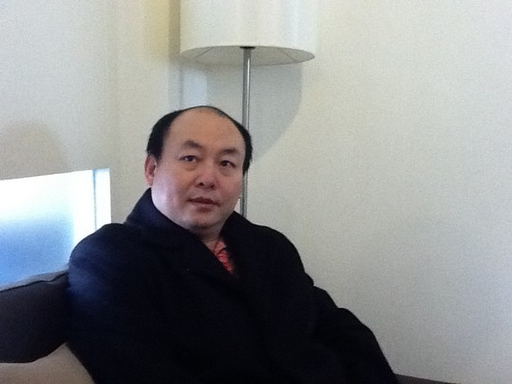
Bo Xilai, the Chinese politician who launched an attack on organized crime is accused of heading a police apparatus that carried out “evil” operations against its enemies.
Bo Xilai spearheaded a crackdown on Chongqing’s mafia organizations, but people are now coming forward claiming this involved torture and false accusations.
These allegations have emerged since Bo Xilai was stripped of his political roles for serious violations of communist party discipline.
These violations are linked to the death of the British businessman Neil Heywood, who was found dead in a hotel room in Chongqing last November.
Chinese people might wonder how Bo Xilai managed to get away with behavior that national leaders were praising until just a few weeks ago.
Bo Xilai began his attack on organized crime in the summer of 2009. Thousands – including government officials, police officers and business people – were detained.
This campaign ran in tandem with a movement to promote the singing of revolutionary songs. The two were known as “sing red, smash black”, black meaning criminal gangs.
One man ensnared in Bo Xilai’s crackdown was Li Jun, whose company, Chongqing Junfeng Industrial Development Group, was involved in real estate.
Li Jun said he first heard the authorities were targeting him in early 2009.
“I ignored them at the time because I am a proper and legitimate businessman,” he said.
But in August that year Li Jun found out that Chongqing’s police chief, Wang Lijun, had ordered a joint investigation with the People’s Liberation Army into his business activities.
At the time, Li Jun said he was buying a large piece of land from the PLA, the name for China’s army, in Chongqing.
The businessman said he divorced his wife to protect her and signed over his business operations to relatives. He then fled Chongqing.
Li Jun returned to the city in December that year to secretly see his wife and two children, but the authorities were waiting for him and took him into custody.
“My mind went blank. I was scared – horrified,” said Li Jun. He claims he was then tortured.
“They tortured me for more than 40 hours to force me to confess. I was banned from going to the toilet or eating. They stabbed me with a pen if I disagreed,” he said.
Li Jun said he was forced to admit that he was a member of an organized crime gang, and that he had been engaged in bribery, fraud and illegally supporting a religious organization.

“They slapped me, kicked me and hit me with an ashtray,” he said.
Li Jun said he was released a few months later after paying a “fine”. Later he escaped Chongqing and has been on the run, fearing for his safety, ever since.
“Bo Xilai and Wang Lijun have done evil,” he said.
Wang Lijun fled to the US consulate in Chengdu, a few hours’ drive from Chongqing, in February this year, apparently after a disagreement with Bo Xilai.
He was eventually persuaded to leave the consulate and immediately disappeared from public view. He is now under investigation.
Wang Lijun is believed to have given the Chinese authorities information about Bo Xilai and his connection to the death of Neil Heywood.
That resulted in the sacking of Bo Xilai, a member of the party’s politburo, and the detention of the politician’s wife, Gu Kailai. She is accused of being involved in Neil Heywood’s suspected murder.
Most attention in this affair has been focused on the death of NeilHeywood and the fall from grace of one of China’s leading politicians.
But others are now starting to look at how Bo Xilai ran Chongqing after he became party secretary there in 2007.
One man who backs up the claims of torture is Li Zhuang, a Beijing lawyer who went to Chongqing to defend one of those accused in the mafia crackdown.
Li Zhuang was then himself charged with trying to persuade his client to claim he had been tortured.
He was arrested and spent a year and a half in prison. The lawyer said he was also tortured.
“They sat me down on what they call a <<tiger chair>>. The chair is secured to the ground and you’re strapped in at the waist,” said Li Zhuang.
The businessman Li Jun said his wife was also forced to undergo interrogation in the “tiger chair”.
The lawyer added: “I sat there for three days and three nights. They don’t let you sleep and restrict what you can eat and drink.” He said others had to sit there for a longer time.
Li Zhuang said the effect of Bo Xilai’s Chongqing crackdown on the country’s legal system was huge.
“They sacrificed the law to enforce cruel procedures,” he said.
Claims that Bo Xilai’s crime busting exploits did not follow the laws they were meant to uphold have been around for some time.
But that did not stop China’s top leaders visiting Chongqing and praising its boss.
Xi Jinping, the man expected to become China’s next leader, and other members of the standing committee of the party’s politburo all went there to give praise.
Wang Yang, a politburo member and in charge of Guangdong province, was perhaps the last national leader to congratulate Bo Xilai, who succeeded him as party secretary in Chongqing.
“There have been big changes in Chongqing in recent years. As someone who has worked there, I feel happy about the changes too,” he said.
Others, including the businessman Li Jun and lawyer Li Zhuang, do not share that view.